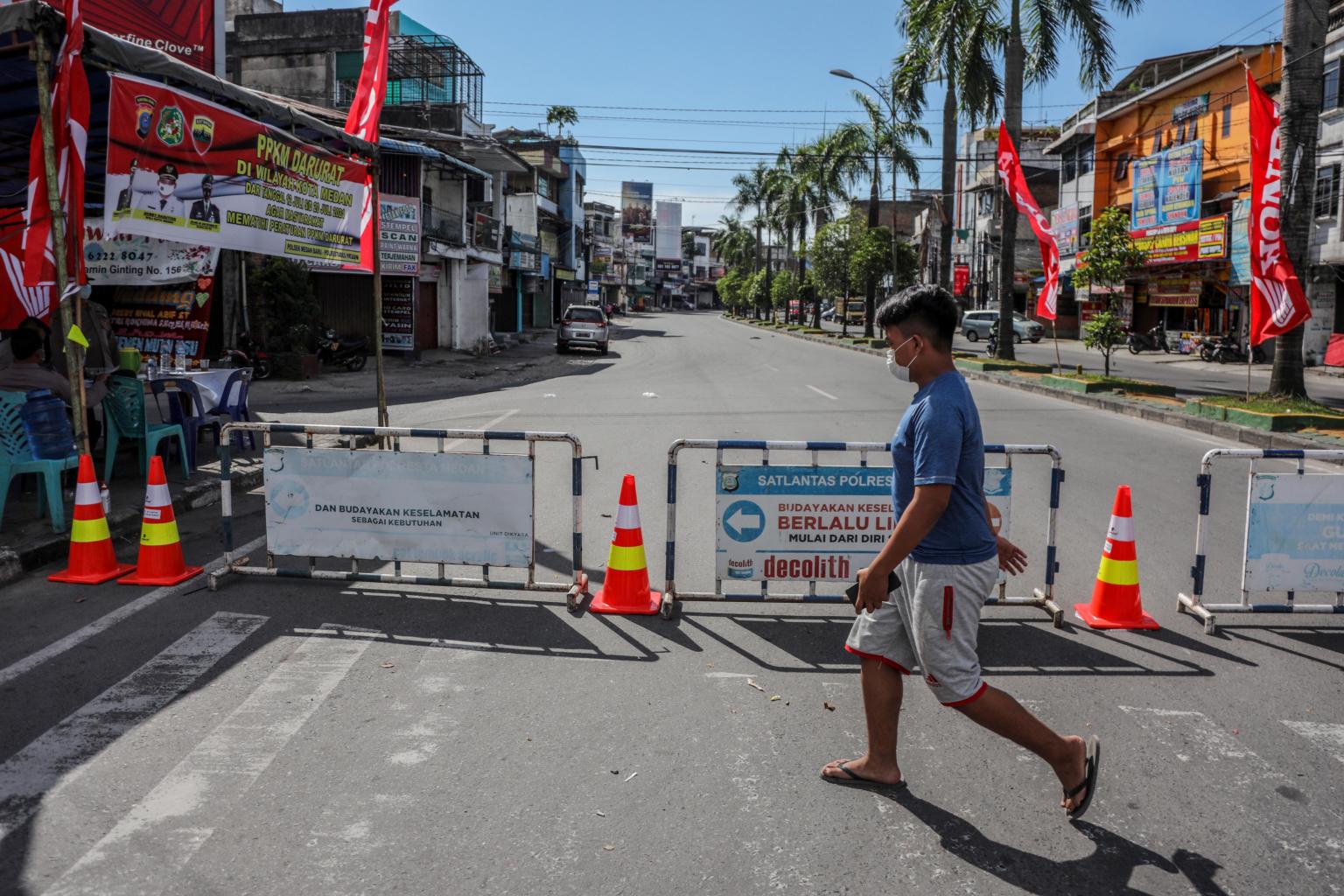Conflicting statements bring uncertainty over extension of Covid-19 curbs in Indonesia
Sign up now: Get ST's newsletters delivered to your inbox

The emergency policy is set to end on July 20, 2021.
PHOTO: EPA-EFE
Follow topic:
JAKARTA (THE JAKARTA POST/ASIA NEWS NETWORK) - The Indonesian government is still mulling over whether to extend emergency public activity restrictions, a senior minister has said, adding further uncertainty over the fate of the policy amid soaring daily Covid-19 infections and deaths across the country.
Coordinating Maritime Affairs and Investment Minister Luhut Pandjaitan, who was tasked with coordinating the government's Covid-19 response in areas affected by the curbs, said he and other ministers were still evaluating the impact of the current emergency restrictions and would soon report to President Joko Widodo.
"We will inform our evaluations to the president. In two or three days, we will announce our decision (on PPKM Darurat)," Mr Luhut said in a live-streamed press conference on Saturday (July 17), referring to the emergency public activity restrictions.
He said the government recognised that it was not easy to make a decision on the Pemberlakuan Pembatasan Kegiatan Masyaraka(PPKM) Darurat policy. On the one hand, mobility curbs were necessary to limit Covid-19 transmission, but on the other hand, the government was also aware of their impacts on the economy.
Mr Luhut's statement painted a different picture from claims made by Coordinating Human Development and Culture Minister Muhadjir Effendy, who said last Friday that President Widodo had already decided in a Cabinet meeting on the same day to extend PPKM Darurat until the end of this month.
The conflicting statements stoked further uncertainty over the emergency restrictions, which so far have failed to lower new infection figures to the government's target of below 10,000 per day.
The national Covid-19 task force reported 51,952 new confirmed cases on Saturday, bringing the cumulative confirmed tally to 2.8 million cases. Meanwhile, 1,092 people died from the disease last Saturday, the second-highest daily fatalities after a record-high of 1,205 deaths last Friday.
However, both figures are believed to be higher due to inadequate testing and tracing efforts outside Jakarta.
Mr Luhut said that several regions such as Jakarta and Bali had already seen fewer public activities and decreased mobility and, therefore, could see the Covid-19 transmission curve flattening in the coming week.
"Cases could still go up, but if we are consistent, the conditions by the end of July will be better," Mr Luhut said.
In a rare break from his usually tough public persona, Mr Luhut issued a public apology over the government's shortcomings in the implementation of the PPKM Darurat policy.
"As the coordinator of PPKM Darurat, I apologise from the bottom of my heart to all Indonesians if our handling of PPKM Darurat across Java and Bali has not been optimal," Mr Luhut said.
The emergency policy, which requires non-essential workers to work from home and prohibits in-restaurant dining, among other measures, is set to end on Tuesday in conjunction with Idul Adha, or Hari Raya Haji.
The policy was initially imposed in Java and Bali but was later expanded to include 15 other regions that recorded a significant increase in confirmed Covid-19 cases, among other parameters.
Mr Luhut said some measures could be relaxed under certain criteria, such as a decline in new confirmed cases and bed occupancy rates.

